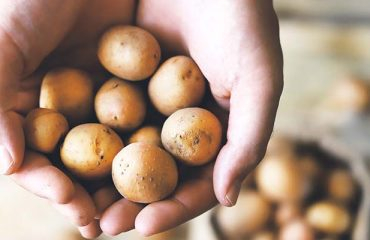Root Zero – Puffin Produce’s certified carbon neutral potatoes, grown using sustainable farming practices to remove carbon dioxide, to create healthy soil, and to increase local biodiversity – have been launched into 200 Co-op stores across the UK, with supermarket availability expected to be announced in the coming months.
Built on the results of the initial footprint assessment, Puffin Produce has set an objective to diminish the carbon intensity of Root Zero potatoes by 51% by 2030, covering emissions from across the entire supply chain, according to a Fruit Net article.
Additionally, the supplier has also committed through the Science-Based Target Initiative to a company-wide 1.5°C target to reduce its operational emissions by 46% by 2030.
In parallel, the provider is investing in carbon offset projects that it said will neutralize all currently unavoidable carbon emissions. The offset projects supported include reduction schemes that cut emissions as well as removal projects which absorb greenhouse gases.
Partnership
3Keel and Climate Partner have joined a partnership with the provider, to support its climate reduction and offset goals respectively. That’s why Root Zeros are packed in 100% plastic-free paper bags. This new environmentally friendly product will prevent more than 5,5 tons of plastic from arriving on supermarket shelves.
Innovations in water-based inks and a special adhesive technology make the paper bag completely recyclable: it can be reprocessed back into high-quality paper again and again. It’s also reusable for storing other vegetables and completely home compostable.
Minimizing Greenhouse Gas Emissions
Root Zero is minimizing greenhouse gas emissions from its whole production process by breaking down its overall footprint to look for improvements in farming, production, and transport practices.
Also, the brand will be generating its green energy by installing solar panels at its production site and wind turbines on its farms.
Its representatives said as well that its commitment to responsible farming practices will also remove carbon from the atmosphere, regenerate soil and increase biodiversity through initiatives such as planting healthy, mixed rotations of cover crops that sequester carbon and the use of abated fertilizers which reduce nitrous oxide emissions.
Biodiversity Woodland
The company is creating a new Root Zero biodiversity woodland and has invested in a nearby undersea restoration project to plant new seagrass meadows. On its farmland, 445 acres of new cover crops are being planted which, as well as sequestering an estimated 97,900kg of carbon dioxide, will also boost soil health and provide additional habitats.
To further support biodiversity, around 110 miles of hedgerows will be conserved and specific projects are underway to protect the area’s barn owls, yellowhammers, and rare solitary bees.
The company’s experts explained that it has measured every contribution to the potatoes’ carbon footprint, from the power used on the farm to the transport used to take Root Zero potatoes to the supermarket, and even down to customers cooking their spuds at home.







